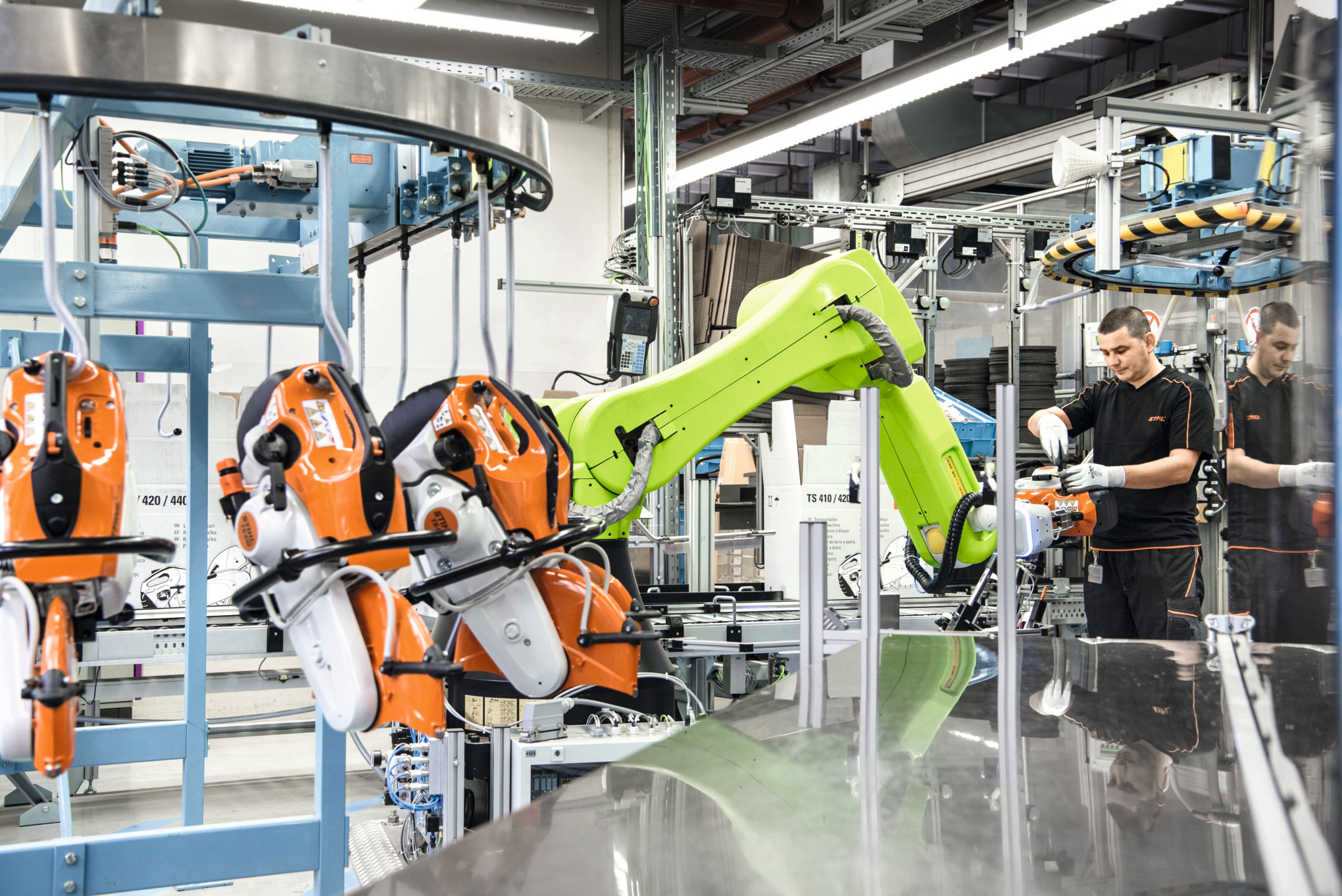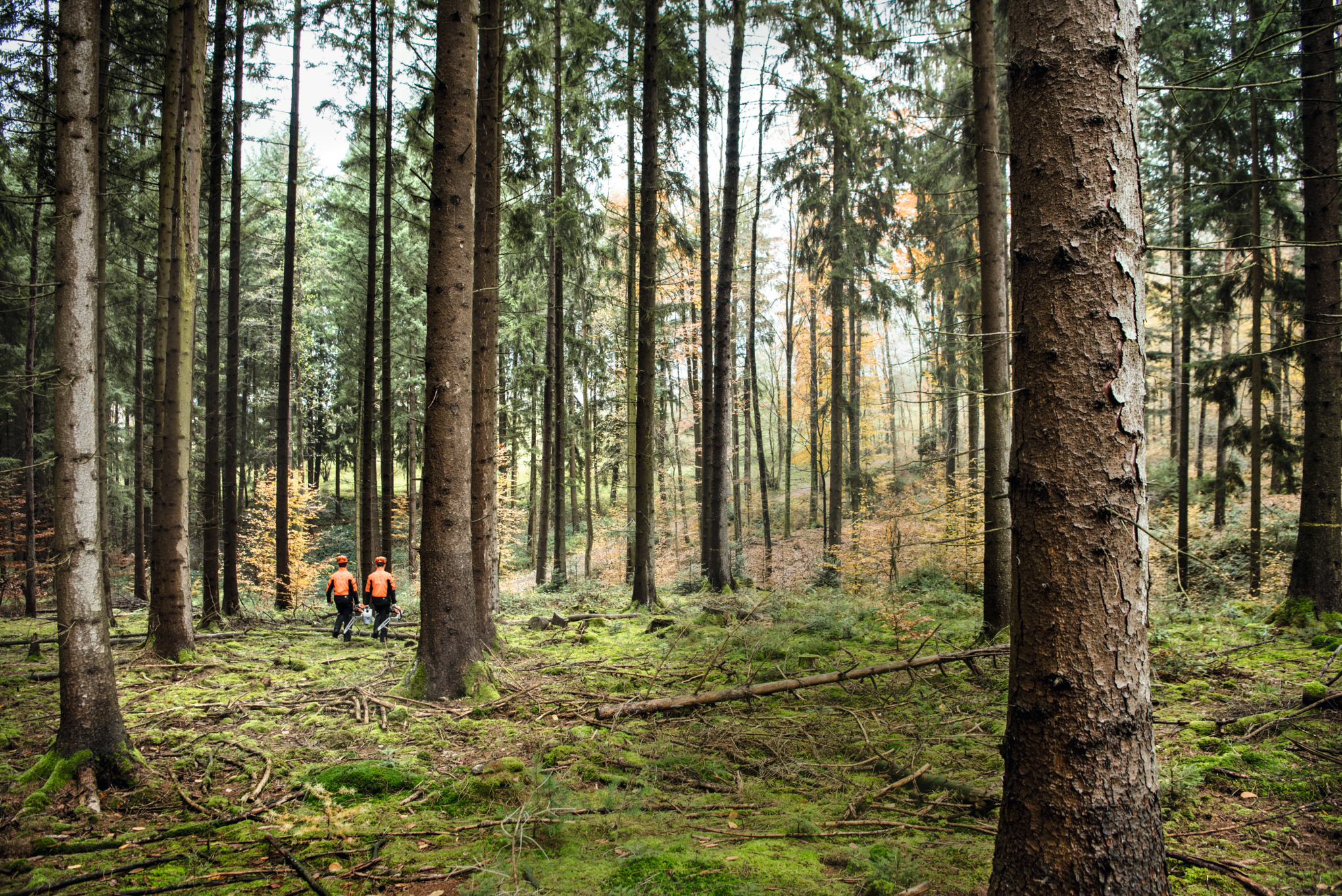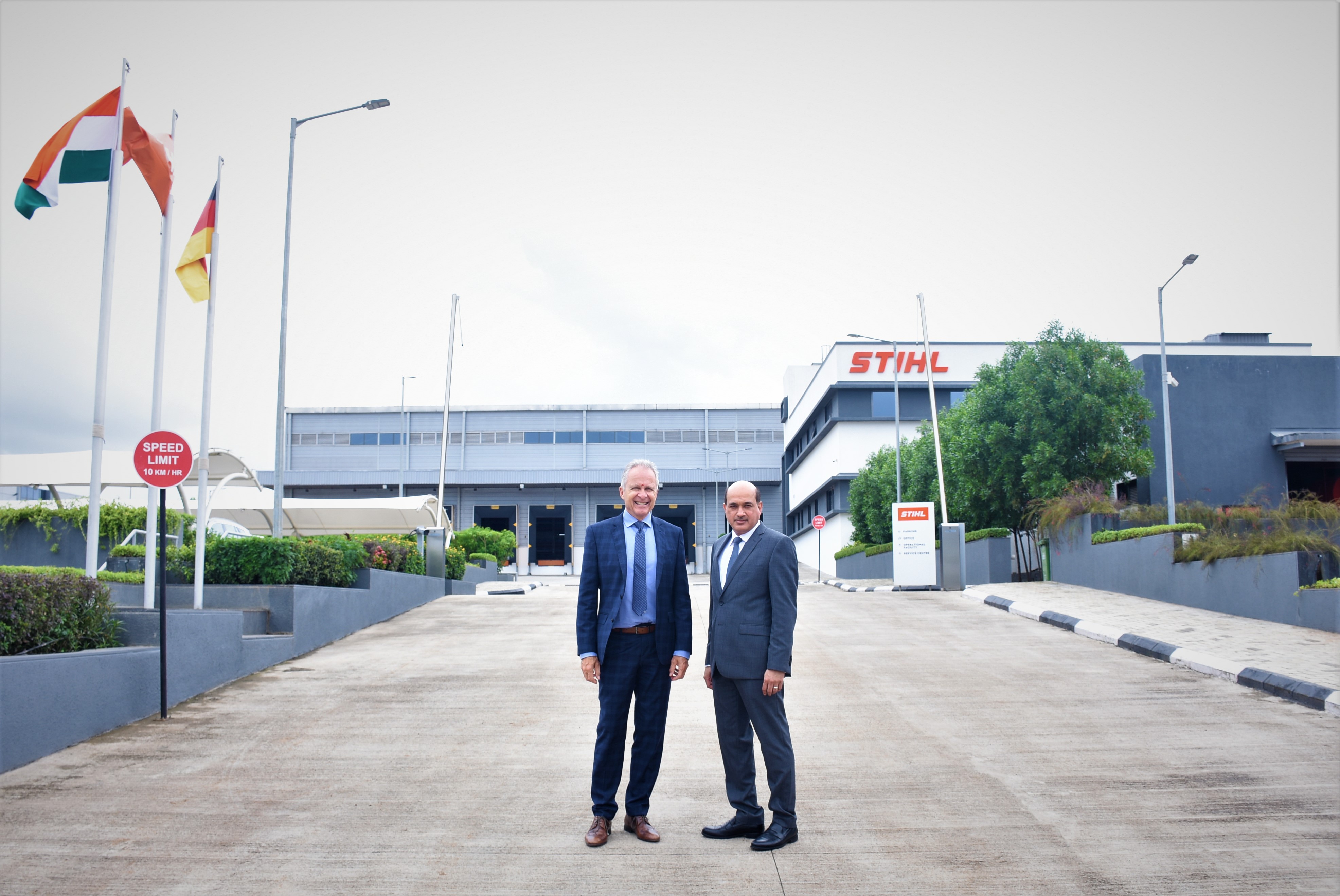India. Thoughts drift from fragrant spices and colorful saris to the peaks of the Himalayas and the coast of the Indian Ocean. With its increasingly mechanized agriculture, it is an exciting market that is currently developing and expanding rapidly. We meet Parind Prabhudesai, Managing Director of the STIHL sales company in India, and talk to him about his home country.
India is a country of diversity and spirituality. From the mountain ranges of the Himalayas in the north to the extensive coastline in the south, India has different topographies, soil cultures and types of farming. Agriculture is dominant here – after all, the Indian peoples have always been known as expert agronomists and traders. With more than 1.3 billion inhabitants, it is the most populous country in the world after China and more than 50% of people here work in agriculture or one of its related sectors. Small-scale and border farmers own less than two hectares of land, making up 86.2% of the total. The high number of potential workers means that labor costs are low, and this in turn significantly slows down the performance of this important and high-potential economic sector. Mechanization in the agricultural industry has only really made inroads in the more recent past.

“With its varied topography, India offers many opportunities for our focus areas of forestry, agriculture, horticulture and landscaping,” explains Parind Prabhudesai, Managing Director of STIHL India. Unlike in Germany, the USA or Scandinavia, he and his team have to face the challenge that around a third of all Indian people live below the poverty line. The associated low purchasing power results in a high demand for affordable products. STIHL meets exactly that requirement with the STIHL FS 230 clearing saw and the STIHL MS 180 chainsaw, for example. The STIHL MH 710 tiller is new on the market. The Indian market is also characterized by power tools for tea cultivation and harvesting, as well as a demand for combination tools that meet the seasonal demand for different tool attachments. Government subsidies enable smallholders to buy these power tools, explains Parind Prabhudesai.

Parind Prabhudesai has been Managing Director of the ANDREAS STIHL Pvt Ltd. sales company, India, based in Pune, since 2014. The location is currently growing – just like the market in India. There are currently more than 1,600 STIHL sales outlets all over the country.
Branded products are in demand: Their robustness, durability and good work results speak for themselves. In addition, the government only subsidizes specified and usually higher-quality products: “The aim is to ensure that every farmer is equipped with the right mechanization to support their livelihood and contribute to the overall economy.”
Thanks to the combination of improved technologies and increasing mechanization, new irrigation options and government-supported pricing policy, Indian agriculture is now experiencing satisfactory growth. STIHL India closely monitors the industry and is involved in special campaigns aimed at farmers. “This time is very exciting and very important for us,” says Parind Prabhudesai. For him, the change that the Indian agriculture industry is currently experiencing is almost a revolution: A profound change in farmers’ living and working conditions.

For this reason, STIHL India is not just about selling products, but also about educating potential new customers. They should see and understand the added value and support that machines and technical aids can offer. That’s why STIHL India is now active throughout the country. With the specially designed “Parivartan Yatra” roadshow (in English “The transformation journey”), STIHL dealers also visit remote areas and explain the product applications using videos, demonstrate the tools in the field, and seek direct exchange of knowledge and ideas with farmers. “In addition, working with various agricultural cooperatives helps us to inspire a larger group of people for this topic.” But social media, the internet and television, sponsorship of popular sports teams and specially converted vans are also used for marketing purposes.

Tillers – like the STIHL MH 710 – are popular with Indian farmers. The purchase of branded products has recently been subsidized by the state. This also makes it easier for small-scale farmers to buy them and operate economically.




In addition to rice, the main foodstuff grown in India is wheat. The country is also one of the world’s largest producers of sugarcane, tea and cotton. Spices are also one of the most important agricultural products.

India is colorful. You can see that in the magnificent saris – and in Indian cuisine. The spectrum of tastes and colors ranges from amchur, a light yellow powder made from dried green mango, to brown cinnamon sticks.

STIHL India has been based in Pune since 2006. The city in the west, not more than 150 kilometers from Mumbai, is known for its educational institutions and IT parks and is home to more than 220 German companies. In 2019, construction work began in Pune to move into a new state-of-the-art building. This investment is intended to help train sales partners and specialist dealers across the country, and to reach customers even more effectively and on a more targeted basis. There are also three regional offices and additional storage capacities in Delhi, Kolkata and Bengaluru so that STIHL products can be offered throughout the country. In addition, there will be connected training facilities at which specialist dealers can be suitably trained and direct contact with customers is possible. In addition to building and structural development, Parind Prabhudesai has always been very interested in market research results in order to build up as much knowledge as possible about his customers’ needs. Various studies are used to support product launches, the identification of development potential and the expansion of the sales network: “We know the farmers, the cultivation conditions, and what equipment they need. That’s our advantage.”
STIHL uses this advantage throughout the entire production network. Development is carried out at the headquarters in Germany, with knowledge of the specific needs of farmers and the demand for cost-effective, robust and high-quality power tools. The result is a range of products specifically designed to meet the needs of newly industrialized countries. The power tools are price-conscious and robust; they can also be successfully and easily repaired by the owner and offer versatile use. Developed with a deep understanding of the entire Asian market, products such as the STIHL FS 230 clearing saw and the STIHL BC 230 cultivator are manufactured at STIHL China in Qingdao and exported from there. “We have convinced customers in India with this portfolio which is built on the entire STIHL Group’s expertise.”




